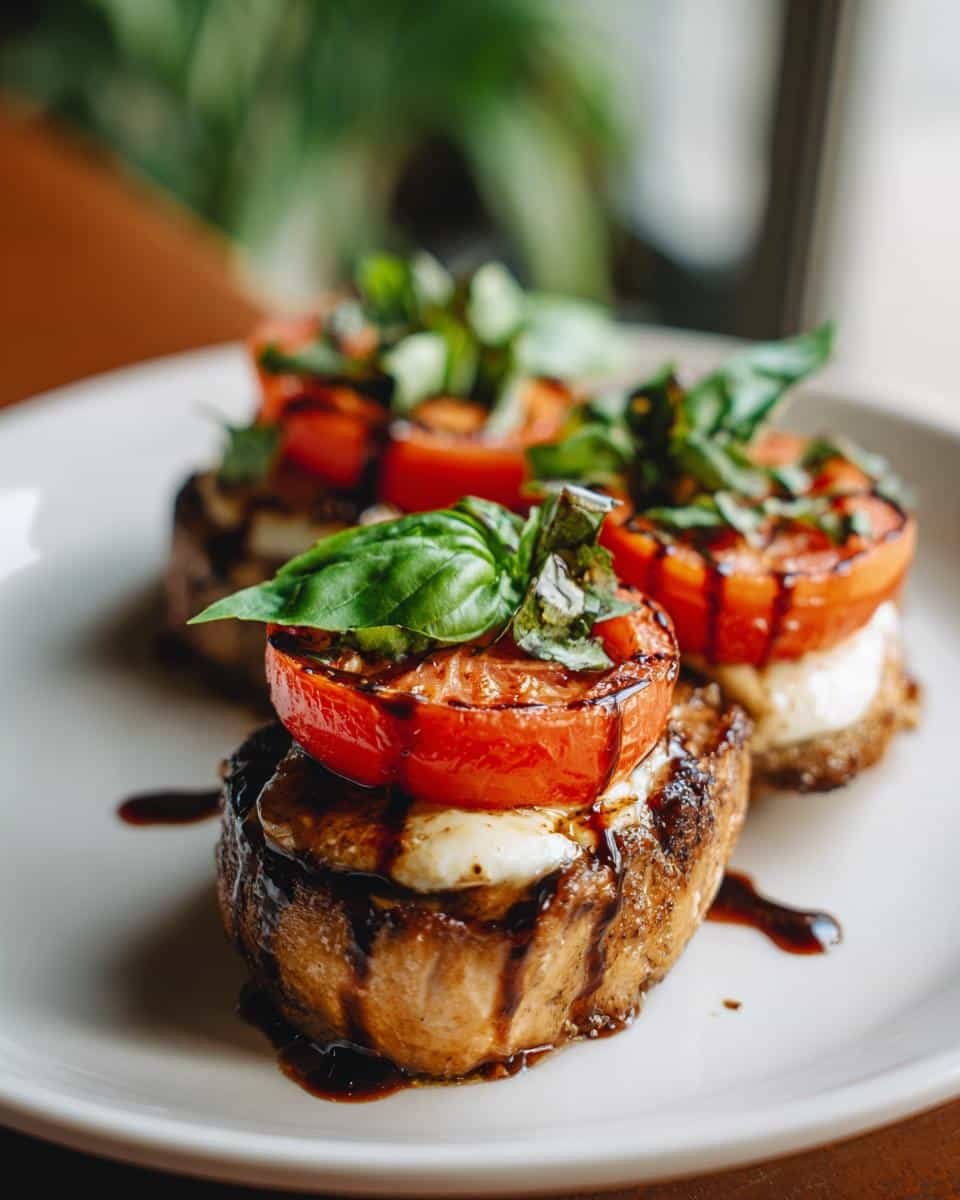Diving into the fascinating world of renowned brands often uncovers tales of innovation, tradition, and strategic brilliance. In the realm of global consumer goods, few names spark as much curiosity and intrigue as Lipton and Knorr. Despite their ubiquitous presence in kitchens around the globe, a swirling question often arises: Are Lipton and Knorr the same? This article embarks on a comprehensive journey to unravel the mystery, illuminating the origins, product diversity, and strategic paths that define and distinguish these iconic brands. Along the way, we’ll explore their shared heritage under the Unilever umbrella, their unique market positions, and how they’ve become staples in our daily lives. So, buckle up as we delve into the rich histories, vibrant product ranges, and forward-thinking strategies that make Lipton and Knorr household names, yet distinct entities in the Unilever portfolio.
Part 1: Introduction to Lipton and Knorr
Understanding the Brands
Lipton and Knorr are giants in their respective arenas, with Lipton reigning supreme in the world of teas and Knorr as a titan in culinary solutions. At their core, both brands embody Unilever’s commitment to quality, innovation, and sustainability. Yet, each has carved out a unique identity that resonates with consumers worldwide. Lipton, with its green and yellow emblem, is synonymous with refreshing tea experiences, while Knorr promises to bring rich flavors and convenience to meals with its array of soups, bouillons, and seasonings.
The Significance of Brand Identity
Brand identity is more than just a logo or a tagline; it’s the essence of what a brand stands for. Lipton and Knorr have mastered the art of storytelling, weaving their values and heritage into every product. Lipton isn’t just about tea; it’s about moments of refreshment and joy. Knorr, on the other hand, champions the joy of flavorful cooking, making gourmet tastes accessible to all. Their identities are a testament to Unilever’s prowess in creating brands that speak directly to the consumer’s heart, transcending mere products to become part of life’s everyday moments.
In essence, while Lipton and Knorr share a parent company, their paths to success are beautifully unique. Their stories are not just about corporate growth but about enriching lives with every cup of tea and every meal. Stay tuned as we delve deeper into the histories that shaped them, the products that define them, and the strategies that continue to drive their global appeal.
Part 2: The Origins of Lipton and Knorr
Lipton: From Tea to a Global Brand
The journey of Lipton begins with Sir Thomas Lipton’s vision in the late 19th century. Venturing into the tea trade, Lipton revolutionized how tea was sold, making it accessible and affordable to the masses. What started with a single store in Glasgow, Scotland, blossomed into a global empire, with Lipton tea becoming synonymous with quality and freshness. The brand’s pioneering approach to sourcing tea directly from the plantations and its innovative packaging techniques marked the beginning of a new era in tea consumption.
Knorr: A Journey Through Time
On a parallel track, Knorr was making its mark in the culinary world. Founded in 1838 by Carl Heinrich Knorr in Heilbronn, Germany, the company began with a simple mission: to enhance the flavor and nutrition of meals. Knorr’s introduction of dried soups laid the groundwork for a portfolio of products that cater to the desire for convenient, yet tasty cooking solutions. Like Lipton, Knorr expanded beyond its initial offerings, growing into a brand beloved for its seasonings, bouillons, and ready-to-cook meals, enriching dishes with depth and flavor.
The Unilever Connection
The paths of Lipton and Knorr converged when they became part of the Unilever family, Lipton in 1938 and Knorr later on. Under Unilever’s stewardship, both brands have flourished, leveraging Unilever’s vast resources, research and development capabilities, and global distribution network. This partnership has enabled Lipton and Knorr to innovate continuously while staying true to their roots—Lipton in enhancing the tea-drinking experience and Knorr in elevating everyday meals.
The origins of Lipton and Knorr are tales of vision, innovation, and persistence. From Sir Thomas Lipton’s tea revolution to Carl Heinrich Knorr’s culinary innovations, these stories are foundational to understanding the brands’ identities and their enduring legacy. As we move forward, the focus shifts to their expansive product ranges and how they’ve adapted to meet the evolving tastes and needs of consumers around the globe.
Part 3: Product Range and Market Position
Lipton’s Tea Varieties
Lipton, a household name in the world of tea, offers a diverse range of products that cater to a wide array of tastes and preferences. From the classic black tea to green teas, herbal infusions, and innovative tea blends like the Substitutes for Onion Soup Mix Yellow Label, the brand ensures that every tea lover finds their perfect cup. With Shared Responsibility: What It Means for the Tea Sector, Lipton has also embraced the Rainforest Alliance certification, assuring consumers of its commitment to Sustainability & Governance Resource Center. This broad spectrum of tea varieties not only underscores Lipton’s market dominance but also its adaptability to global consumer trends.
Knorr’s Culinary Solutions
Knorr stands as a beacon of culinary excellence, offering an extensive range of products designed to enhance cooking experiences. From soups and bouillons to seasonings and quick meal solutions, Knorr empowers cooks at all skill levels to unlock rich flavors in their dishes. The brand’s commitment to quality ingredients and flavor innovation is evident in its continuous introduction of new products, such as the Knorr Stock Pot and Knorr Homestyle Stock. Knorr’s ability to blend tradition with innovation has cemented its position as a leader in the food industry, making gourmet cooking accessible to everyone.
Market Presence and Consumer Perception
The market presence of Lipton Onion Soup Mix Guide 2 and Knorr is a testament to their enduring appeal and strategic brand positioning. Lipton, with its global footprint, has become synonymous with tea, enjoying widespread popularity and loyalty among consumers. Similarly, Knorr has established itself as a go-to brand for chefs and home cooks alike, looking to elevate their cooking with rich flavors and convenient solutions. The positive consumer perception of both brands is not just a result of their product quality but also their ability to innovate and stay relevant in a fast-evolving market landscape.
In exploring the diverse product ranges and market positions of Lipton and Knorr, it becomes clear that their strength lies in their ability to continuously adapt and innovate. Their commitment to quality, sustainability, and flavor excellence has not only earned them a special place in the hearts of consumers but has also set them apart as leaders in their respective categories. As we delve deeper into the strategic maneuvers and brand philosophies that drive their success, it’s evident that Lipton and Knorr are much more than just subsidiaries of Unilever; they are brands with a soul, each with a unique story to tell.
Part 4: Business Strategies and Brand Philosophies
Branding Strategies
The branding strategies of Lipton and Knorr reveal a deep understanding of their markets and a commitment to staying relevant and resonant with their audiences. Lipton leverages its heritage of quality and innovation to appeal to health-conscious and environmentally aware consumers, focusing on sustainability and the wellness benefits of tea. Knorr, on the other hand, emphasizes the richness and authenticity of flavors, aiming to bring gourmet cooking experiences into every home. Both brands utilize a mix of traditional and digital marketing platforms to engage with their audiences, from impactful social media campaigns to community-based initiatives, demonstrating a dynamic and adaptable approach to brand communication.
Sustainability Efforts and Ethical Sourcing
Sustainability is a core component of the brand philosophies of both Lipton and Knorr. Lipton has been at the forefront of ethical tea sourcing, with its commitment to sourcing 100% of its tea from Rainforest Alliance-certified farms. This not only ensures the sustainability of tea production but also improves the livelihoods of tea farmers. Similarly, Knorr is dedicated to sustainable farming practices, working closely with farmers to promote biodiversity and reduce environmental impact. These efforts reflect a broader Unilever initiative to craft a sustainable future for food and beverages, highlighting the brands’ roles as stewards of ethical and environmentally friendly practices.
Innovation and Consumer Engagement
Innovation is the lifeblood of both Lipton and Knorr, driving their product development and marketing strategies. Lipton continually explores new tea blends and packaging solutions to enhance the tea-drinking experience, while Knorr focuses on creating new flavors and meal solutions that cater to the evolving tastes of global consumers. Consumer engagement is equally important, with both brands investing in understanding consumer needs through feedback mechanisms and interactive campaigns. This focus on innovation and engagement ensures that Lipton and Knorr remain at the forefront of their industries, continually adapting to the changing landscapes of food and beverage consumption.
The business strategies and brand philosophies of Lipton and Knorr are a testament to their resilience and visionary leadership in the global market. By prioritizing sustainability, innovation, and consumer engagement, they have not only established themselves as leaders in their respective fields but also as brands that consumers trust and admire. As we continue to explore the intricate dynamics of these brands, it becomes evident that their success is built on a foundation of ethical practices, quality products, and a deep understanding of the global consumer.
Part 5: Frequently Asked Questions
In an effort to demystify some of the common inquiries surrounding Lipton and Knorr, this section addresses the most pressing questions in the minds of consumers and enthusiasts alike. These FAQs shine a light on the intricate relationship between these two powerhouse brands and their standings within the vast Unilever constellation.
Are Lipton and Knorr owned by the same company?
Yes, both Lipton and Knorr fall under the expansive umbrella of Unilever, a leading global consumer goods company known for its wide range of brands across food, beverages, cleaning agents, and personal care products. This shared parentage underscores a commitment to quality, sustainability, and innovation, driving both brands toward global recognition and success.
Do Lipton and Knorr share the same product lines?
While Lipton and Knorr are siblings within the Unilever family, their product lines cater to distinct culinary and beverage niches. Lipton specializes in tea products, offering a broad spectrum from black and green teas to herbal blends and iced teas. Knorr, conversely, focuses on enhancing the cooking experience with its range of soups, bouillons, seasonings, and ready-to-cook meals. Their unique product offerings reflect their specialized focus areas, yet both aim to enrich daily culinary and beverage experiences.
How do Lipton and Knorr contribute to sustainability?
Sustainability is a cornerstone of both brands’ strategies, reflecting their commitment to responsible sourcing, environmental stewardship, and social equity. Lipton has pioneered sustainable tea farming practices, with a significant portion of its tea being sourced from Rainforest Alliance-certified farms. Knorr, for its part, collaborates closely with farmers around the globe to promote sustainable agriculture, ensuring that its ingredients are sourced responsibly and contribute positively to the environment. These initiatives are part of Unilever’s broader sustainability agenda, emphasizing the company’s dedication to making a positive impact on the planet and its inhabitants.
This FAQs section not only provides clarity on common queries but also highlights the shared values and distinct identities of Lipton and Knorr. Through their commitment to sustainability, quality, and innovation, both brands continue to carve out their legacies, offering products that resonate with consumers worldwide and embody the ethos of the Unilever brand.
Part 6: Analysis and Consumer Insights
Delving deeper into the world of Lipton and Knorr reveals a rich tapestry of consumer perceptions, competitive positioning, and future market trends. This analysis sheds light on the enduring popularity of these brands and their strategic maneuvers in the ever-evolving food and beverage landscape.
Brand Loyalty and Consumer Preferences
Lipton and Knorr have both cultivated strong brand loyalty among their consumer base, a testament to their consistent quality, innovation, and brand messaging that resonates on a personal level. Lipton, with its array of tea products, appeals to a broad demographic seeking both tradition and innovation in their beverage choices. Knorr, with its focus on convenience without compromise on taste, caters to busy individuals and families who still desire home-cooked meals. The loyalty to these brands is not just about the products but the values they represent, such as sustainability, quality, and a commitment to enhancing the everyday culinary experience.
Competitive Analysis in the Food and Beverage Sector
In the competitive landscape of the food and beverage sector, Lipton and Knorr stand out for their adaptability and forward-thinking strategies. Lipton competes in the bustling tea market by emphasizing its sustainable sourcing and product variety, setting it apart from competitors. Knorr, on the other hand, differentiates itself with its depth of flavors and the convenience of its products, appealing to a wide range of culinary needs and preferences. Both brands have successfully navigated market challenges through a deep understanding of consumer trends and a relentless focus on innovation.
Future Trends and Growth Opportunities
The future for Lipton and Knorr is ripe with opportunities as consumer preferences continue to evolve towards health-conscious, sustainable, and convenient food and beverage options. For Lipton, the growing interest in herbal and green teas presents an avenue for expansion, tapping into the wellness trend. Knorr can leverage the increasing demand for quick, nutritious meal solutions that don’t compromise on taste or quality. Both brands are well-positioned to capitalize on these trends, with their strong foundation in sustainability and innovation paving the way for continued growth and market leadership.
The analysis of Lipton and Knorr underscores their remarkable journey from humble beginnings to becoming pillars of the global food and beverage industry. Their success is a blend of strategic foresight, a deep understanding of consumer needs, and a steadfast commitment to sustainability and quality. As they move forward, the legacy of Lipton and Knorr will undoubtedly continue to be defined by their ability to innovate and adapt, ensuring their place in the hearts and homes of consumers for generations to come.
Part 7: Conclusion
Synthesizing the multifaceted narratives of Lipton and Knorr reveals a compelling story of innovation, sustainability, and consumer-centricity. As we’ve journeyed through their histories, product diversities, market strategies, and future prospects, it’s clear that while they share a common lineage under Unilever, each brand uniquely contributes to the global food and beverage landscape.
Key Takeaways
Lipton and Knorr have demonstrated an exemplary commitment to sustainability, from ethically sourcing ingredients to fostering environmentally friendly practices. Their efforts are a beacon for the industry, showcasing how global brands can lead in the fight against climate change and for social equity. Moreover, their continuous innovation—whether through Lipton’s diverse tea offerings or Knorr’s culinary solutions—ensures they remain at the forefront of consumer preferences, meeting the demand for quality, convenience, and taste.
The Future of Food and Beverage Brands
The trajectories of Lipton and Knorr offer valuable insights into the Enabling sustainable food systems: Innovators’ handbook. To thrive, brands must not only offer high-quality products but also align with broader societal values such as sustainability and health consciousness. Furthermore, understanding and adapting to consumer preferences will be crucial, as demonstrated by Lipton’s and Knorr’s innovative approaches to product development and marketing.
In conclusion, Lipton and Knorr exemplify the power of brands to influence and adapt to the changing world. Their stories are not just about business success; they are about making a positive impact on the environment, enhancing people’s lives through their products, and setting a standard for future generations of brands. As they continue to evolve, Lipton and Knorr will undoubtedly remain beloved by consumers around the globe, a testament to their enduring legacy and commitment to excellence.



